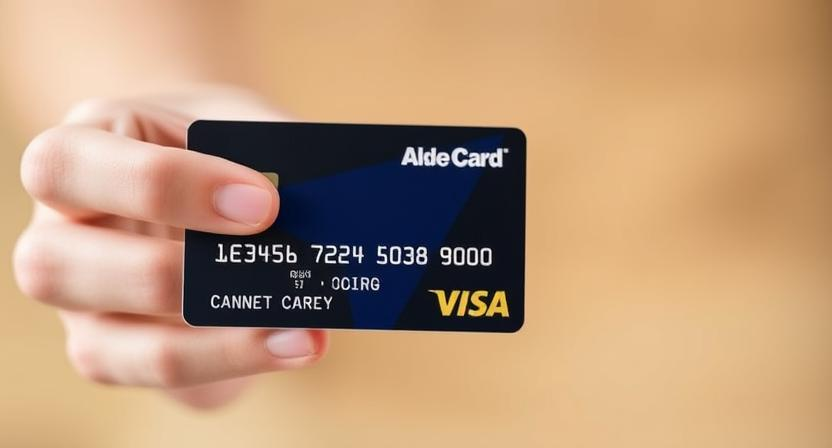A good credit score can open doors to better financial opportunities, from lower interest rates on loans and credit cards to better terms on mortgages and even rental agreements. If you’re looking to improve your credit score quickly, it’s important to know that it requires a combination of strategy, discipline, and patience. While there are no instant fixes, there are several actions you can take to see noticeable improvements in a relatively short period.
In this article, we’ll explore actionable steps that can help you boost your credit score fast.
1. Check Your Credit Report for Errors
The first step in improving your credit score is to check your credit report for errors. Mistakes on your report can negatively impact your score, and you could be paying the price for something that isn’t even your fault. Common errors include incorrect personal information, duplicate accounts, or outdated debt.
How It Helps:
- Dispute inaccuracies: If you find any mistakes, dispute them with the credit bureaus to have them corrected. This can quickly improve your score once the error is removed.
- Get a clear picture: Reviewing your credit report can give you insights into where improvements are needed, such as late payments or high credit utilization.
Actionable Steps:
- Get a free credit report from each of the three major credit bureaus—Experian, TransUnion, and Equifax—at AnnualCreditReport.com.
- Review the report for any discrepancies or incorrect information and dispute errors directly with the credit bureau.
2. Pay Your Bills on Time
Your payment history accounts for 35% of your credit score, making it one of the most important factors. If you have any missed or late payments, it can significantly lower your score. Paying your bills on time can have a positive impact, and consistently doing so will demonstrate your ability to manage credit responsibly.
How It Helps:
- Positive payment history: Timely payments show lenders that you are financially responsible and can handle credit obligations.
- Prevents late fees: By paying on time, you avoid late fees, which can also contribute to your credit score improvement.
Actionable Steps:
- Set up automatic payments or reminders to ensure that bills are paid on time.
- Prioritize paying your bills, especially credit cards, loans, and utilities, to avoid late payments.
3. Reduce Your Credit Utilization Ratio
Your credit utilization ratio—the percentage of your available credit that you’re using—plays a significant role in determining your credit score. Ideally, you should keep your credit utilization below 30%. If your utilization is higher, it can signal to lenders that you are over-relying on credit, which may lower your score.
How It Helps:
- Lower credit utilization: Reducing your utilization shows lenders that you’re not overextended and can manage credit effectively.
- Increases your available credit: By reducing your balance or increasing your credit limit, your utilization ratio improves, which can boost your score.
Actionable Steps:
- Pay down high balances: Pay off existing credit card balances to lower your utilization.
- Request a credit limit increase: If possible, ask your credit card issuer for a higher credit limit. This can help lower your utilization ratio, but only if you don’t increase your spending.
- Spread out balances: If you have multiple credit cards, try spreading your balances more evenly across cards to lower utilization on individual accounts.
4. Become an Authorized User
If you have a family member or close friend with a good credit history, ask if you can be added as an authorized user on their credit card account. Being an authorized user means you can benefit from their positive credit history, and it can quickly boost your credit score.
How It Helps:
- Benefit from their credit: As an authorized user, their good payment history will appear on your credit report, helping to improve your score.
- No need to use the card: You don’t have to make purchases on the card to benefit from their positive credit history.
Actionable Steps:
- Find someone with a good credit history who is willing to add you as an authorized user.
- Make sure the credit card issuer reports authorized users to the credit bureaus.
5. Pay Down Revolving Debt
Revolving debt—credit card debt, for example—has a significant impact on your credit score. If you have multiple credit cards with high balances, focus on paying them down first. High revolving balances can harm your score, but once they are paid down, your score should improve relatively quickly.
How It Helps:
- Improves credit utilization: Paying down credit card debt will lower your credit utilization ratio, leading to a higher score.
- Reduces interest: As you pay down revolving debt, you’ll reduce the amount of interest you owe, freeing up more money for savings and future debt payments.
Actionable Steps:
- Focus on paying off the credit card with the highest interest rate first (the avalanche method) or the smallest balance (the snowball method).
- Avoid adding new charges to your credit cards while paying down existing debt.
6. Request a Credit Limit Increase
If you have a good payment history and your credit utilization is high, one way to improve your score fast is by requesting a credit limit increase from your credit card issuer. Increasing your credit limit while keeping your spending the same reduces your credit utilization ratio, which can lead to a higher score.
How It Helps:
- Improves utilization ratio: A higher credit limit gives you more available credit, which lowers your utilization ratio and improves your credit score.
- Can have a quick impact: In some cases, a credit limit increase can have an immediate impact on your score.
Actionable Steps:
- Call your credit card issuer and ask for a credit limit increase.
- Make sure that your request does not result in a hard inquiry on your credit report, as this can temporarily lower your score.
7. Avoid Opening New Credit Accounts
Every time you apply for new credit, a hard inquiry is placed on your credit report. While this inquiry only has a small, temporary effect, too many inquiries in a short period can lower your score. If you’re trying to improve your score fast, avoid opening new credit accounts during this time.
How It Helps:
- Protects your credit score: New inquiries can lower your score and signal to lenders that you’re desperate for credit.
- Minimizes the impact of hard inquiries: The more inquiries you have, the longer it takes to recover your score.
Actionable Steps:
- Avoid applying for new credit cards or loans while trying to improve your score.
- If you need credit, consider asking for a credit limit increase instead of opening new accounts.
8. Consider a Secured Credit Card
If your credit is in poor shape, one way to rebuild your score quickly is by using a secured credit card. A secured card requires a cash deposit, which acts as collateral. As you make timely payments, the card issuer will report your activity to the credit bureaus, helping to rebuild your credit.
How It Helps:
- Rebuilds your credit history: Secured credit cards are often easier to get than regular cards and can help rebuild a damaged credit score.
- Improves your payment history: Using a secured card responsibly will show lenders that you can handle credit.
Actionable Steps:
- Research reputable secured credit card issuers.
- Use the card for small purchases and pay it off in full each month.
Conclusion
Improving your credit score takes time, but by following these steps, you can see improvements in a relatively short period. The most important actions include paying your bills on time, reducing your credit utilization, checking for errors on your credit report, and being strategic about new credit applications.
By implementing these strategies, you can b






Leave a Reply